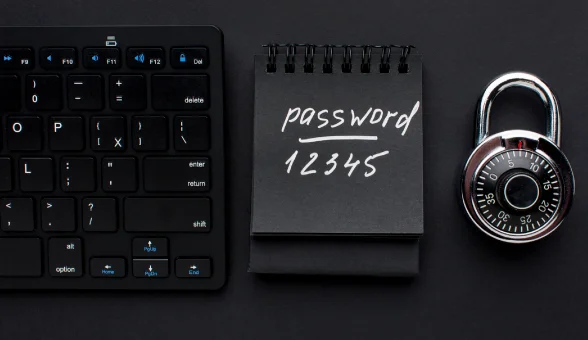Financial crimes have been on the rise for a long time and have affected people in ways that cannot be fathomed. It delivers a big blow to the affected person—emotionally and financially.
Wire and mail fraud are financial crimes that use trickery or false claims to gain money. It impacts unaware individuals or companies.
These crimes are taken seriously by the authorities; those convicted can face heavy fines and jail time. Knowing fraud with wire and mail, identifying common scenarios, and taking measures to prevent these will keep you away from being a victim.
What is Wire Fraud?
Wire fraud involves the manipulation of electronic modes of communication—such as phone calls, emails, and wire transfers—to commit the scam. In America, this makes it a federal offense, and sentences are sterner, ranging from but not limited to imprisonment.
Examples of Wire Fraud
Probably the most common form of wire fraud is wire transfer fraud, in which the victim is tricked into transferring money into an account of the fraudster. Many scam artists impersonating your business partner or lawyer may request wire transfers that sound plausible but are fraudulent.
Business Email Compromise: A cybercriminal either hacks or spoofs email accounts and impersonates a company executive to request that an employee transfer funds to an account of a fraudster.
Wire Fraud in Real Estate: An attacker tampers with legitimate instructions about wire transfers in the process of a real estate transaction. Scammers may pose as buyers, sellers, or even the attorneys from closings, wiring money to the wrong person.
The elements that identify wire fraud as such include:
- The scheme should be carried out with the intent to defraud another; that is, wire fraud cannot happen unintentionally.
- The scheme to defraud should be connected to the transmission of interstate wire communications.
- It would only be appropriate to say that the scheme necessarily and inherently involves interstate wire communications.
What is Mail Fraud?
Mail fraud consists of mailing services to commit or accomplish any scheme of fraud by using deceptive letters, contracts, or any other paper with the intent to defraud recipients. Just like wire fraud, it is a federal crime and can be punished strictly under the law.
Examples of Mail Fraud
Lottery Scams: Victims are informed of some sort of grand prize they should have won. To receive this good fortune, an upfront processing fee is usually requested, for which the scammer pockets the money, and no prize is ever received.
Invoice scams involvesending businesses fake invoices for goods ordered or services provided when those goods or services were never ordered. These could look much like real invoices, requesting urgent action for payment, thus deceiving a company into paying for items or services never received.
Conspiracy to commit wire fraud occurs when two or more individuals get together and begin planning an action that will be carried out in such a way that electronic communication is utilized. It forms a different offense and is serious; conspirators may face strict penalties even if no money has exchanged hands or the fraud has not been completed.
Conspiracy to commit wire fraud may be prosecuted when two people agree on committing fraud by stealing money from a company in which there are wire transfers of money on false instructions, though the fraud itself has not taken place.
What is the Difference Between Mail Fraud and Wire Fraud?
The fraudulent activities to be contemplated at their core often involve similar offenses. The federal government does not have constitutional power to criminalize certain behaviors unless they relate to areas that the Constitution allows it to regulate.
A great deal of federal criminal law flows from the acknowledged power of Congress to control interstate commerce, as in the case of narcotics offenses.
The Federal mail fraud statute reaches fraudulent schemes that use the mail service or any public or private carrier in interstate commerce. Analogously, wire fraud encompasses those schemes using interstate wire, radio, or television communications in commerce that cross state or national boundaries.
Wiring money from your account is the easiest and most effective way to transfer cash to an individual or other entity. It’s great for paying large bills, helping out your family members financially, or even closing real estate deals.
On the other hand, wire transfers are commonly related to fraud because they can’t usually be reversed.
Here are three tips to protect your accounts:
Tip 1: Wire transfers should be handled as though it were a cash transaction
Wire transfers are electronic fund transfers from one account to another. They work like cash transactions in that, once processed, these transfers are almost impossible to stop. Once the money ends up with the recipient, it is considered irrevocably his or her money, and the transaction is complete. It is this aspect that makes wire transfers appealing to fraudsters.
Tip 2: Beware of Scams
Unsolicited Wire Transfer Requests: Unsolicited calls for money should raise a red flag. Banks would always verify the authenticity of such requests and never make any transfer without it.
Investment Frauds: Be cautious with everything that promises guaranteed returns or says there is “no risk” in investing in cryptocurrencies, gold, or foreign real estate. Know that if you send money abroad by wire transfer, you might as well consider it lost.
Wiring instructions change at the last minute for real estate: Those who are about to close on property are common targets. Scammers may impersonate real estate agents, mortgage brokers, or escrow agents, requesting that money be wired to access closing funds or down payments because of urgent changes in wiring instructions.
Phony “problems” or “issues” with accounts: Never wire money to fix an issue with your account. No reputable company will ever ask that a wire transfer be sent to resolve any issues with your account.
Overpayment scams: A person sends you a check and then asks you to wire back the difference; that check may be fraudulent, and it might also be one of the most common frauds.
Romance scams: Scammers would pose as the perfect partner, telling you how excited they are at the prospect of meeting you soon, while in reality, they try to deceive money out of you.
Tip 3: Give them time
Be suspicious of sudden emails and/or phone calls.
Scammers often impersonate a real company or individual and request the victim to transfer funds elsewhere. Some even spoof a Caller ID to make it appear as though the call is originating anywhere in the country.
Your move: Always confirm whether such a request is authentic first.
If you are being urged to act, do the opposite.
Hang up, delete the message, and take whatever time is needed to contact the organization directly to confirm legitimacy.
How to Avoid Wire Fraud and Mail Fraud?
It is impossible to prevent wire and mail fraud without constant awareness and familiarity with the common strategies of scammer attacks. The following are some effective ways to safeguard against those frauds:
- Verify Before You Wire: Always verify requests for wire transfers, especially if they are unsolicited or appear suspect in any way. As one example, if you receive such a request involved in a real estate transaction, confirm the instructions by telephoning a known person with a previously verified phone number—not one listed in the email.
- Secure Channels: Do not send confidential financial information via e-mail or via some unsecured message services. Use encryption, if possible.
- Be Wary of Urgent Requests: Urgency is often created in most scam actions to force the victim into impulsive action. You should raise an eyebrow at any wire transfer request that requires urgent attention.
- Report Suspicious Incidents: If you feel you have been exposed to a wire or mail fraud scheme, report it immediately. Prompt reporting increases your potential for recovering funds on fraudulent wire transfers.
- Monitor your accounts: There are abnormal transactions to be traced in your account. Set an alert on major or international transactions, as this will serve as an early warning system when fraud occurs.
Wire Transfer Fraud Recovery
If you are the victim of a fraudulent wire transfer, take action immediately. Since most wire transfers cannot be reversed, the quicker your response, the better the chances that your bank might be able to halt the transaction before the funds leave the bank. You should also contact the police and file a complaint with the Federal Trade Commission at ftc.gov/complaint along with other appropriate agencies.
In cases of huge amounts of highly sophisticated scams, you will be forced to seek the services of an attorney specializing in wire transfer fraud recovery. That professional will enable you to understand the legal landscape and subsequently work with the concerned law enforcement agencies to track the misappropriated funds.
Conclusion
The application of wire fraud and mail fraud can bring huge financial blows to individuals and businesses, and that is where the interest lies.
In this case, it’s important to be fully informed about popular schemes, understand the conspiracy behind wire fraud, and know ways to prevent fraudulent wire transfers in protecting your financial well-being.
Be very cautious, and do not make any payment or reveal any sensitive information unless you are sure that this is justified; likewise, act immediately when you suspect fraudsters have targeted you.
This would go a long way in minimizing the chances of being a victim of these solemn crimes, so long as one keeps abreast and has an eye open to alert him.
FAQs
What can one do if they think that they are under investigation for mail or wire fraud?
If you think that you are under investigation for mail or wire fraud, you need to seek the services of an attorney. He can protect your rights and might even reduce or dismiss the criminal charges altogether. Mail fraud sentence is given accordingly.
Name the liable party for wire fraud
In wire fraud cases, a bank cannot be deemed negligent if it is not under any duty with the payee or payor. In most instances, the bank is only obliged to its customer, which in this case, is the hacker.
Can you call it mail fraud if someone uses your address?
Address theft can result in serious problems regarding finance and the law. Mail fraud, identity theft, and damage to your credit score are all common issues that can arise when someone has control over your address for fraudulent reasons. If you think that someone is fraudulently using your address, this is something that you will want to take action on. You can report identity theft to the Federal Trade Commission and may want to contact your local police department.
How do you recognize mail fraud?
An assertion that one has been chosen selectively for some special purpose.
A request for you to "validate your personal information."
A request for payment via a method other than credit cards, such as cash, gift cards, or wire transfers.
Preparation of fraudulent documents in apparently official form or reproducing false government seals.



